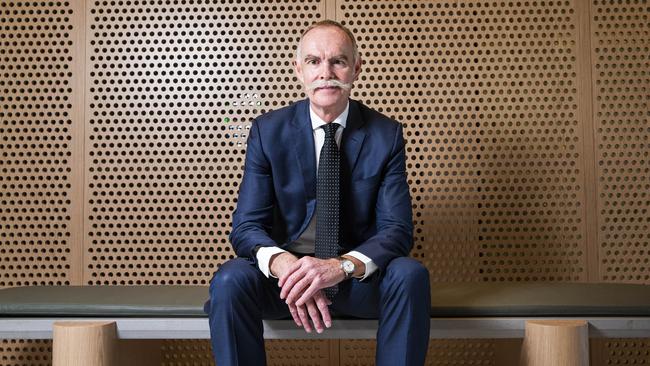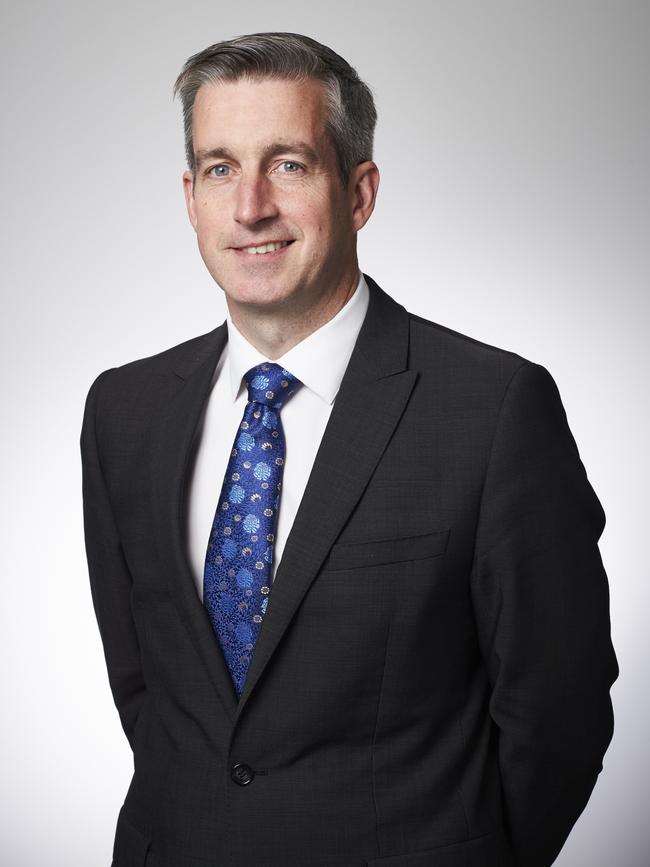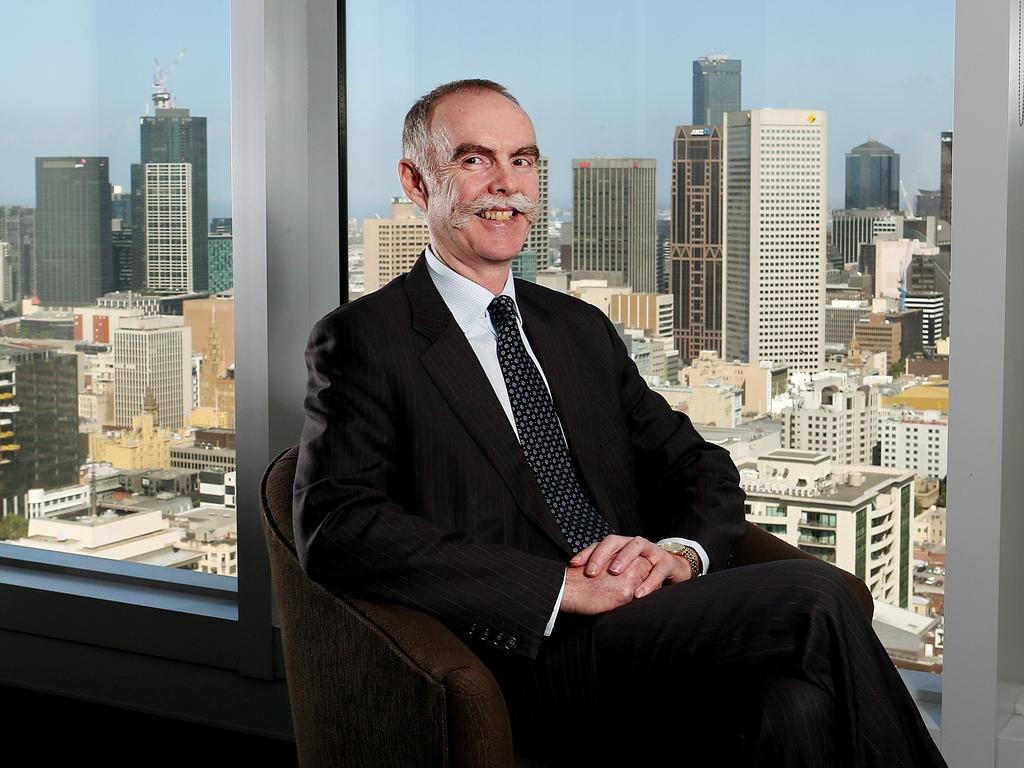AustralianSuper sticks to growth path as CEO Ian Silk departs
The $225bn AustralianSuper will continue to set itself ambitious growth challenges following the departure of foundation chief executive Ian Silk.

The $225bn AustralianSuper will continue to set itself ambitious growth challenges – including doubling in size over the next five years – following the departure of foundation chief executive Ian Silk.
Chief risk officer Paul Schroder, who has worked at the super fund for the past 14 years, will take over from Mr Silk when the industry veteran steps down at the end of the year, having built it up to become the largest super fund in the nation.
AustralianSuper chairman Don Russell paid tribute to Mr Silk, who has become the face of the rapidly growing $800bn industry super movement, overseeing a tenfold growth in assets for AustralianSuper since it was founded in 2006.
Mr Russell said Mr Schroder had the leadership capacity to continue the “ambitious growth strategy” that Mr Silk had overseen.
“Part of the success of AustralianSuper has always been its ambition,” Mr Russell told The Australian.
“Even now the fund is very large and successful, it has set itself some ambitious new objectives. We are going to continue to expand around the world as part of our plan to bring more investment in-house. We have an expanding office in London and we will do the same in New York as soon as the virus allows.”
He said staff in the fund’s international offices would be looking for deals offshore, including in infrastructure and private equity.
In an interview last week, chief investment officer Mark Delaney said the fund was expecting to grow to almost $500bn in assets in the next five years.
He said the fund, which managed about 45 per cent of its assets in-house, would continue the strategy where it made sense to do so and could generate more efficiencies.
AustralianSuper was expecting net cash inflows of about $20bn in the current financial year, up from about $14bn last year.
Mr Russell said the fund was conscious that, as it expanded offshore, it would continue to ensure that its investments were in line with AustralianSuper’s industry fund culture.
“Bringing in new capacity to invest in private markets around the world is a huge challenge on a number of different levels,” he said. “We have to be able to do it in a way which doesn’t disrupt the culture within the fund itself.
“You can’t be expected to be able to manage infrastructure or private equity in the US or the UK out of Melbourne.
“But it has to be handled in the right way with the right people with the right culture to make it a reality,” Mr Russell added.
While AustralianSuper dominated the industry fund sector, it was conscious that it was set to face more competition with the merger of other super funds.
“We are living through a period of rapid amalgamation of super funds,” Mr Russell said.
“We will end up with some highly competitive funds, all of which can do what we can do.”
Mr Russell said Mr Schroder was “inheriting a well functioning machine” that had been built up by Mr Silk and his team over the past 15 years.

Mr Silk is going out on a high of increasing assets and industry-leading returns.
Its balanced fund recently reported a record 20.43 per cent return for the last financial year after one of its toughest years ever the year before, when markets were hit by the onset of the pandemic and the return for its balanced fund was 0.52 per cent.
Super Ratings has rated the AustralianSuper balanced fund as the best performer over the past five-year period, returning 9.74 per cent. The fund also topped the rankings of the new YourSuper reporting regime for MySuper products, alongside hospitality super fund Hostplus, with the balanced funds of both reporting 8.1 per cent growth a year for six years.
Mr Silk said the highlight of his career was achieving top returns for AustralianSuper’s members, which now top 2.4 million.
The fund has a staff of almost 1000 largely based in Melbourne, up from just 50 when it was formed in 2006 from a merger of the Australian Retirement Fund, which was run by Mr Silk, and the Superannuation Trust of Australia, which was run by Mr Delaney.
Mr Silk, who was one of the few executive in the financial sector to emerge from the banking royal commission unscathed, has told friends he is “not retiring” and could look for another role.
Mr Russell said Mr Silk had helped build AustralianSuper with a strategy of establishing a strong executive team and IT systems and bringing a significant proportion of its investment in-house.
KPMG executive Paul Howes, a former director of AustralianSuper, said Mr Silk had played a key role in the growth of the fund and in the industry super sector. He had been instrumental in transforming the fund from one that was seen in 2006 as largely catering to the manufacturing sector to a public offer fund that attracted members from all industry sectors.
“It has gone from being a specialised fund to being seen as a fund for all Australians over the past 15 years,” Mr Howes said.
Innes Willox, CEO of national employer association Ai Group, said Mr Silk’s decision to stand down was a “monumental day” in the history of the fund and the industry super movement.
“Mr Silk has always led the fund with deep integrity and a commitment to putting its members first in every decision,” Mr Willox said.
Industry Super Australia chairman Greg Combet said Mr Silk had made a “superb contribution” to the sector, “delivering many members more money than they would have dreamt possible, which will transform their lives”.
Mr Schroder has worked for the fund in a series of executive roles including group executive strategy, brand and reputation, group executive membership and most recently as chief risk officer.
Mr Silk said Mr Schroder was the right candidate to lead AustralianSuper into the future.
“Paul has played a key role across the fund over the past decade in providing low-cost insurance to members, building the fund’s brand and most recently embedding a leading risk culture at AustralianSuper,” he said.







To join the conversation, please log in. Don't have an account? Register
Join the conversation, you are commenting as Logout